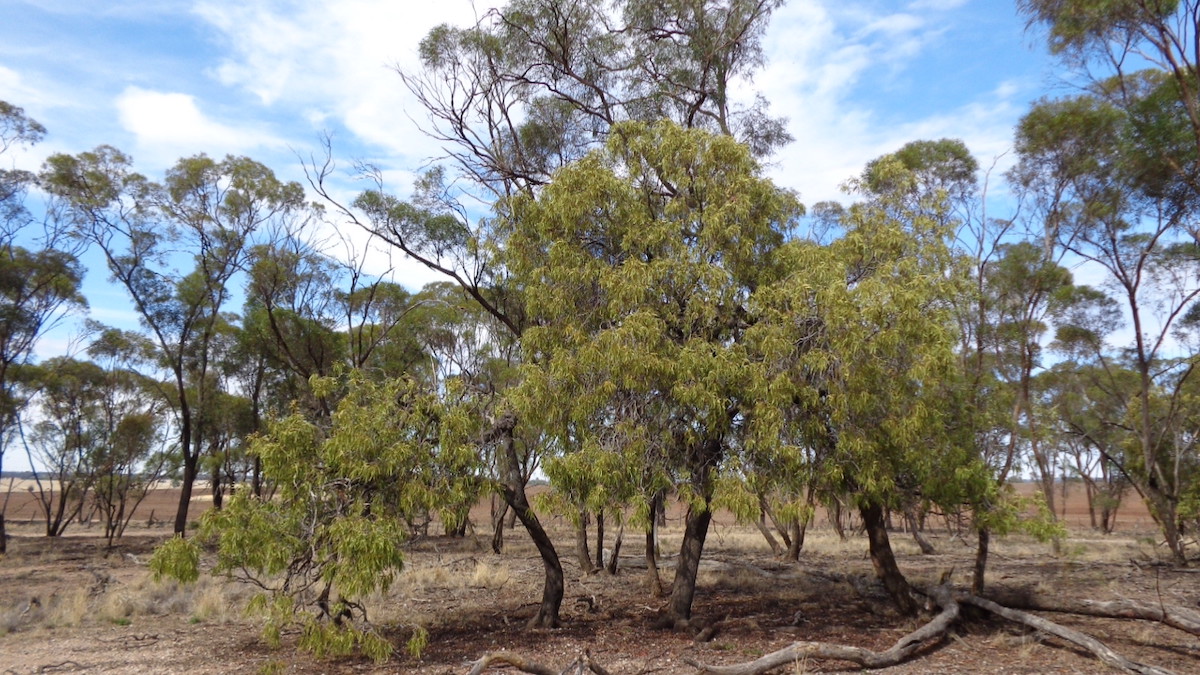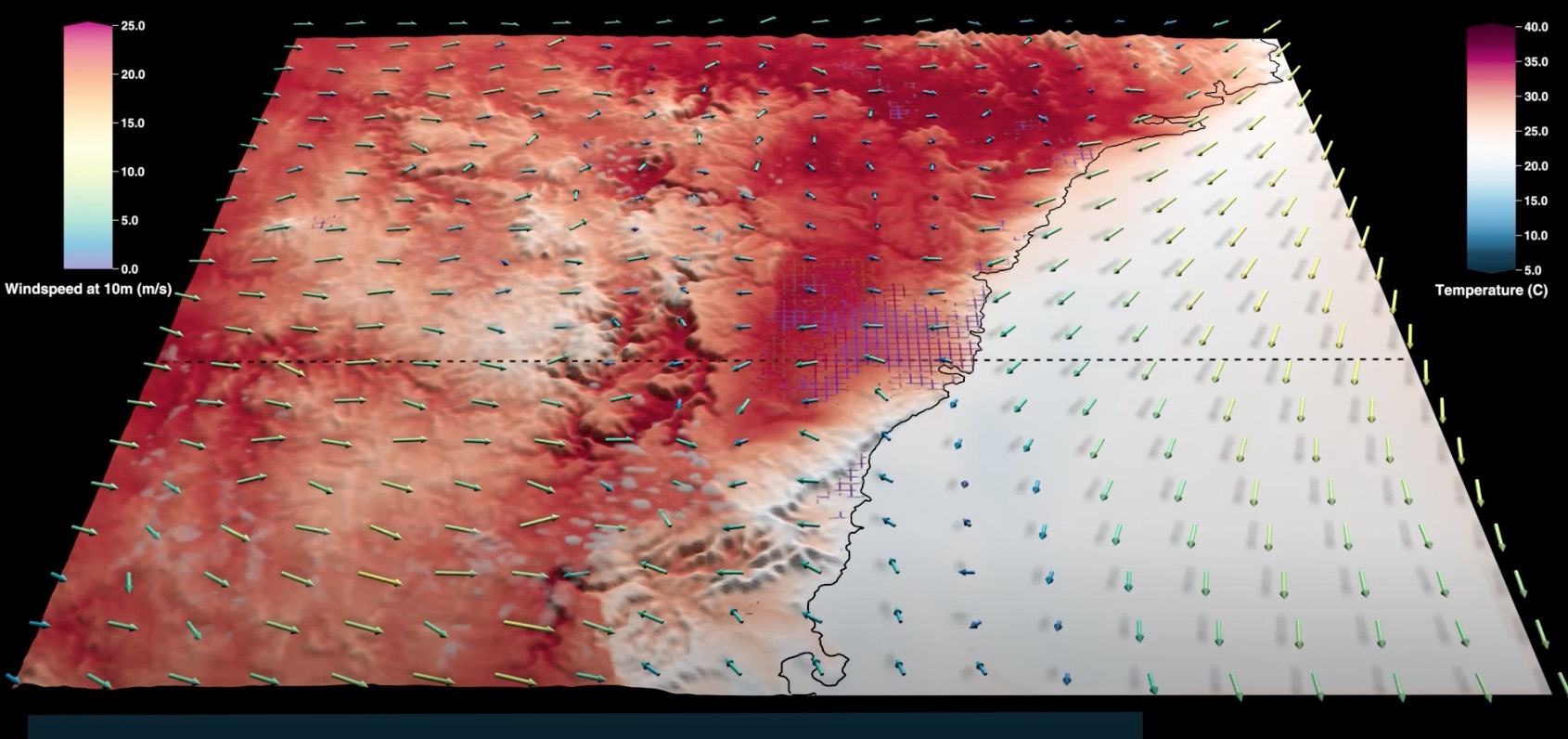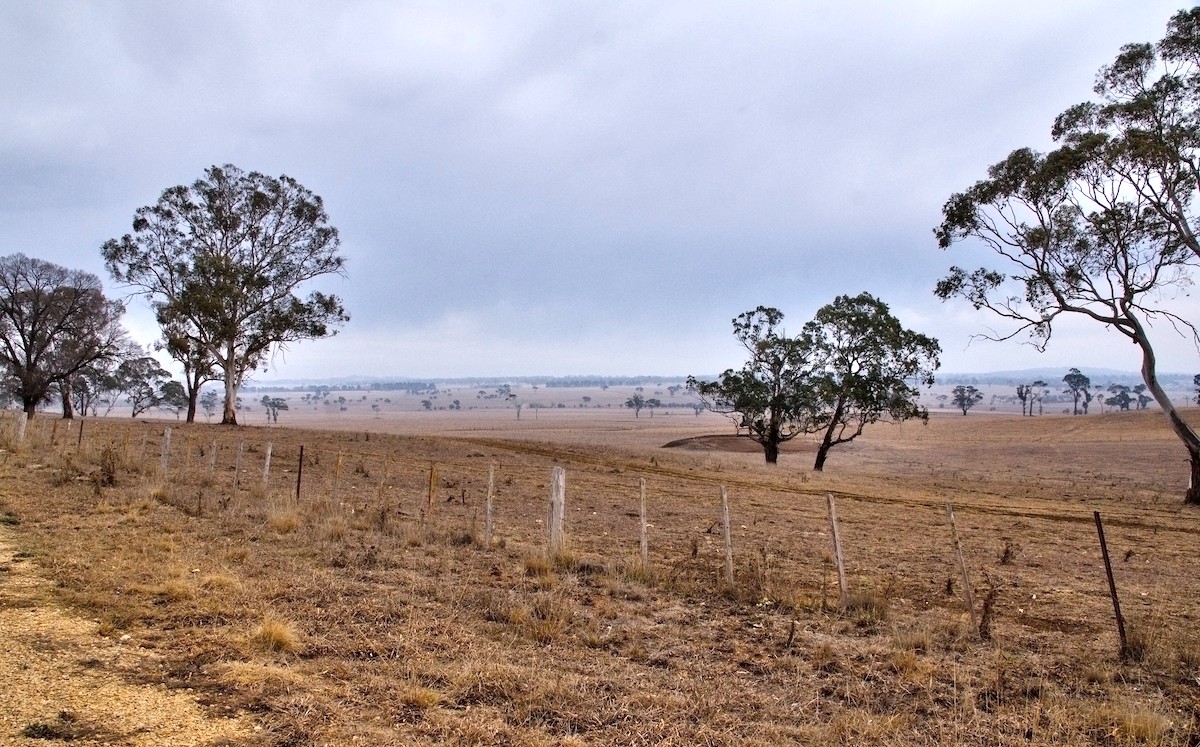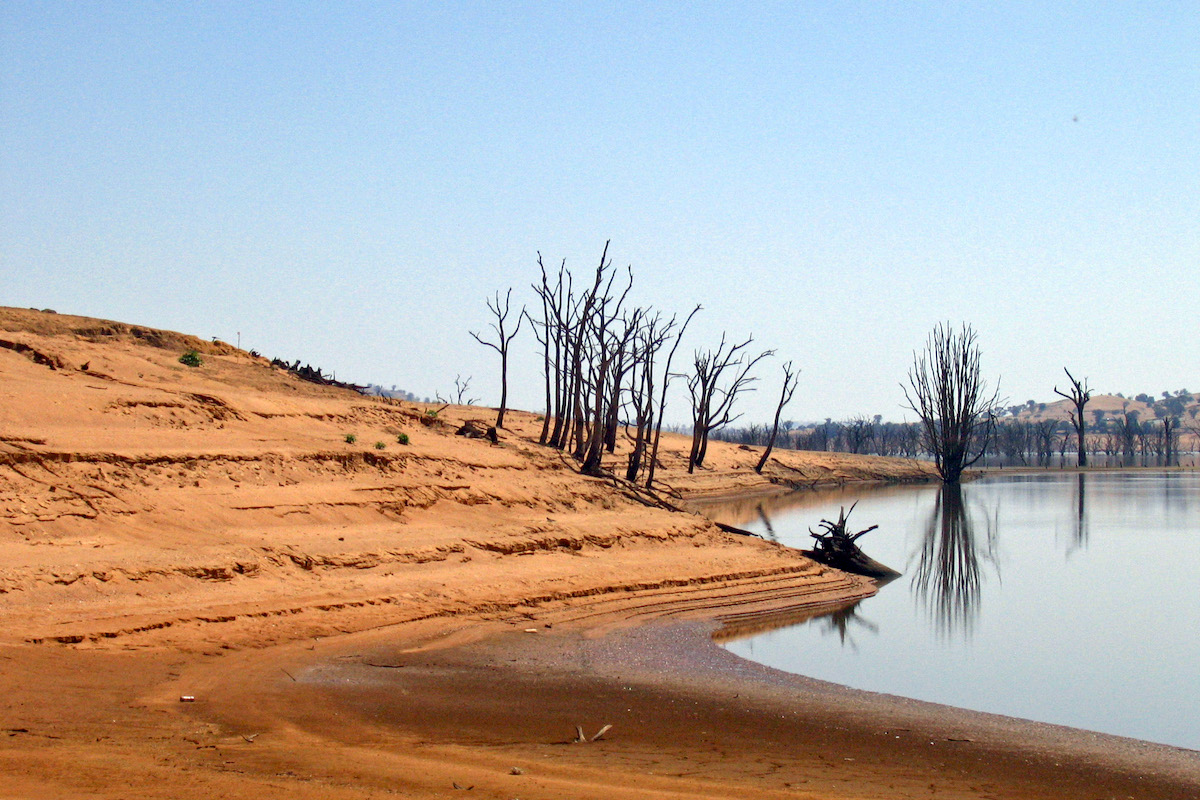-
Research brief: Groundwater’s essential role in preserving plant transpiration during drought

CLEX researchers and colleagues used a land-surface model that considered groundwater dynamics to explain how groundwater sustains transpiration and eases plant heat pressure during the heatwaves that occurred during the Millennium Drought and the 2017-2019 severe drought over southeast Australia.
-
Research brief: Climate change may increase hazelnut yield in Southeast Australia

CLEX researchers and colleagues combined high-resolution regional climate projections with a process-based hazelnut simulation model to predict future hazelnut yield in Australia.
-
Research brief: Urban heat island effect amplifies Sydney heatwaves

This research uses Sydney, Australia’s largest city, as a test case for our new configuration of the Weather and Research Forecasting model run at a very high resolution of 800 m with a new urban classification scheme that describes the complexity of Sydney’s built environment.
-
Research brief: How ENSO affects the North Atlantic

In this study, CLEX researchers and colleagues showed that the North Atlantic sea-surface temperature response to ENSO is nonlinear with respect to the strength of the sea-surface temperature forcing in the tropical Pacific.
-
Research brief: accuracy of ground and satellite measurements For Precipitation evaluated

In this study, CLEX researchers aimed to evaluate the effect of different sources of data and the uncertainties in satellite data, by comparing the data with a ground-based radar product using both location-based and storm-based approaches.
-
Research brief: El Niño variations have little impact on terrestrial carbon cycle

Different expressions of El Niño do affect interannual variability in the terrestrial carbon cycle. However, the effect over longer timescales is small. This means the changing frequency of these two types of El Niño events may be of little importance in terms of robustly simulating the future terrestrial carbon cycle.
-
Research brief: What generates flash droughts in climate models?

Until now, flash drought research has been on the regional scale and has been limited to observations and reanalyses. CLEX researchers have been the first to examine flash drought in climate models.
-
Research brief: How Central Pacific El Niños affect rainfall over the Murray Darling basin

This research around central Pacific El Niños is important for agricultural and water resources planning efforts in the Murray Darling Basin region and may help with seasonal prediction efforts to predict drought‐breaking rain such as occurred in early 2020.
-
Business risk and the emergence of climate analytics

There is a great deal of misuse of climate model projections emerging in business. Climate models are being used for some purposes that are simply inappropriate leading to assessments of the physical risks to business that are of no value. However, there are ways to use climate model data that has value and can help…
-
Research brief: New reporting format for leaf-level gas exchange data

In this study, the researchers propose a reporting format for leaf-level gas exchange data and metadata to provide guidance to data contributors on how to store data in repositories to maximise their discoverability, facilitate their efficient reuse, and add value to individual datasets.
